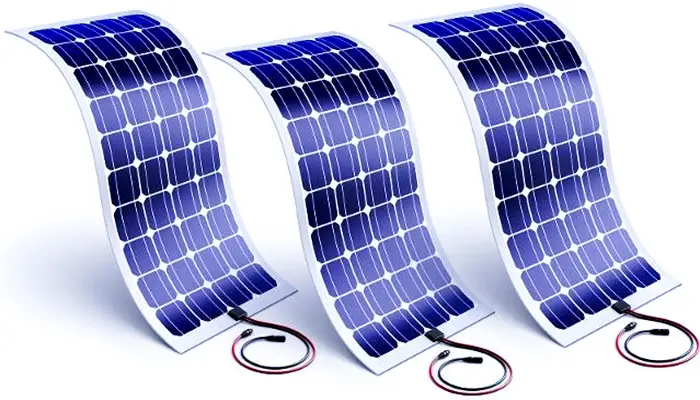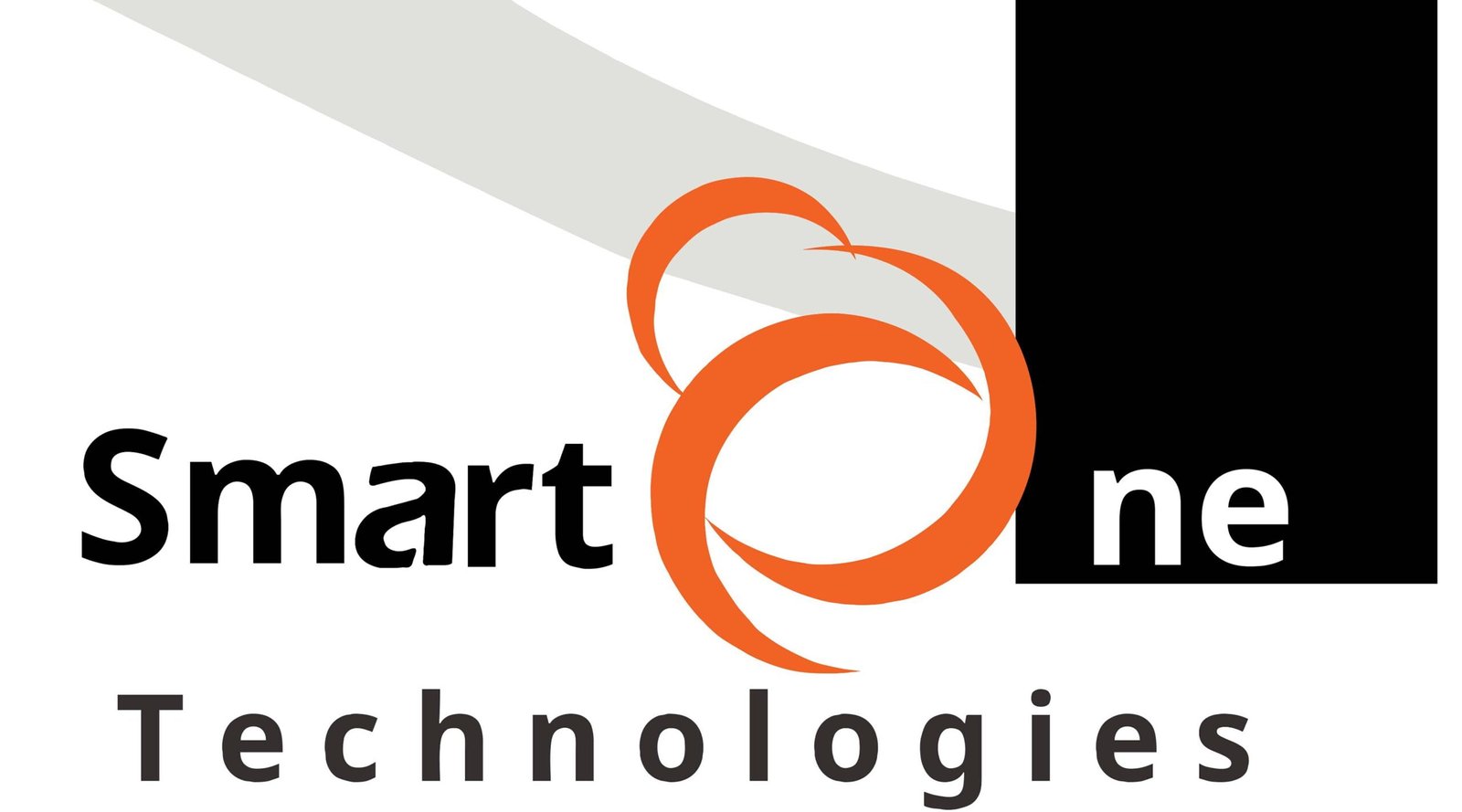Solar power has become one of the mainstays in developing green and sustainable energy sources. While the world struggles with global warming and the depletion of fossil fuels and resources, solar power is a shining beacon of optimism. However, the advancements don’t stop at rigid, conventional solar panels. We are entering the age of flexible solar panels. It’s a revolutionary technology set to change how we harness the sun’s power.
What are Flexible Solar Panels?
As the name suggests, flexible solar panels are not your typical solar panels. They boast the unique feature of a flexible structure that can bend and stretch without compromising efficiency. Unlike traditional rigid panels made of silicon wafers and encased in aluminium and glass, these panels are crafted using thin film solar cells. These cells are strategically placed on a flexible substrate, allowing the panel to adapt to the surface it is placed on.
How Flexible Solar Panels Work
Flexible solar panels use the same fundamental concepts as traditional solar panels. They convert sunlight to electricity through the use of photovoltaic effects. There is a major difference in the components that are used. Flexible panels typically use amorphous silicon, cadmium-telluride or copper indium selenide (CIGS). These are usually applied as thin layers that are subsequently deposited on the backing of a flexible material like metal, plastic, or fabric.
Advantages of Flexible Solar Panels
Versatility and Adaptability
One of the most exciting aspects of flexible solar panels is their adaptability. They can be used in areas where traditional panels are not feasible, such as curved roofs, cars, and portable devices. This opens up possibilities for solar energy use in various industries.
Lightweight and Portable
Contrary to their heavier counterparts, the flexible solar panels are light, making them suitable for use in portable settings. Hikers, campers, and emergency relief efforts can benefit significantly from the ease of transport and installation of the panels.
Aesthetic Appeal
If you are concerned about the aesthetic impact of conventional solar panels, the flexible ones provide an aesthetic solution. They blend effortlessly in vehicles, buildings and even clothes designs and provide a less intrusive alternative for solar energy generation.
Cost-Effectiveness
Although the initial price of flexible solar panels may be more expensive, their simplicity of installation and less labour-intensive costs typically make them an affordable option in the long term. In addition, continuous advancements in manufacturing will reduce costs even more.
Disadvantages and Challenges
Efficiency Concerns
One of the challenges that solar panels with flexible structures face is efficiency. They are generally less efficient than rigid panels. However, ongoing research is making strides in this area, with newer models showing significant improvement. This indicates a promising future for flexible solar panels.
Durability Issues
Flexible solar panels, though robust, are more prone to wear and tear when compared to rigid solar panels. Making sure they last in tough conditions is a major challenge that scientists are working to solve.
Market Acceptance
Although they have many advantages, flexible solar panels are still widely available. The novelty could cause hesitation among businesses and consumers, hindering widespread acceptance.
Innovative Applications of Flexible Solar Panels
Consumer Electronics
Imagine charging your mobile phone using a solar case or even a laptop that charges itself when you are away. The flexible solar panel makes these ideas possible, seamlessly integrating into our everyday electronics.
Wearable Technology
The popularity of wearable tech is finding a perfect match with flexible solar panels. From solar-powered smartwatches and clothing that charge devices, The possibilities are limitless.
Transportation
The flexible solar panel is creating waves in the field of transportation. Cars powered by solar energy and even planes have become an idea. They can be incorporated on the exterior of vehicles to provide an additional energy source and enhance fuel efficiency.
Building-Integrated Photovoltaics (BIPV)
Integrating solar panels into the structure of buildings is an increasing trend. Flexible panels are used on facades, windows and roofs, transforming entire structures into generators without compromising design.
Technological Advancements in Flexible Solar Panels
Recent Breakthroughs
Modern advances have greatly enhanced the efficiency of flexible structures for solar panels. The latest advances in the energy and manufacturing techniques for solar panels have resulted in higher performance and longer lasting.
Role of Nanotechnology
Nanotechnology plays an important role in the creation of flexible solar panels. By manipulating the materials on the molecular scale, researchers can create better and stronger solar panels that can perform under diverse canes.
Improvements in Efficiency and Durability
Research continues to lead to innovations that increase the durability and efficiency of solar panels with flexible structures. Innovative layers of protection and coatings are designed to improve their life and efficiency.
Environmental Impact
Flexible solar panels aid in decreasing carbon footprints because they provide a sustainable energy source. In addition, their production process is more eco-green than that of traditional panels, requiring less energy and creating less emission.
Case Studies of Successful Implementation
Real-World Examples
Many organizations and businesses have successfully implemented flexible solar panels using creative methods. As successfully implemented, Roof integrates flexible solar cell ins. It’s an attractive, appealing and effective solution for homeowners.
Success Story of Various Industries
From car manufacturers incorporating solar panels in their car roofs to fashion labels that produce solar-powered clothes, the success stories of success are numerous and inspirational. These stories illustrate the possibilities and flexibility of solar panels.
Future Prospects of Flexible Solar Panels
Potential for Growth in the Market
The market for flexible solar panels is poised for significant growth. As the technology continues to advance and the cost of production decreases, more businesses and consumers are likely to embrace this revolutionary solution, paving the way for a brighter, more sustainable future.
Expected Technological Advancements
The next wave of technological advancements in flexible solar panels will focus on enhancing their efficiency, durability, and integration capabilities. Through continuous research and development, these panels are set to become more competitive with conventional solar technologies, ensuring a promising future for this innovative solution.
Flexible Solar Panels in comparison to. Traditional Solar Panels
Performance Comparison
Traditional solar panels are the most efficient. However, flexible panels are swiftly picking up. This gap is closing with the advent of new materials and techniques.
Cost Comparison
At first, flexible solar panels are more costly. However, their lower expenses for installation and maintenance could make them more affordable as time policy for Different Applications on
Solar panels that are traditional in design and construction are designed for large-scale installations. However, flexible panels are ideal for situations that require flexible solutions.
Installation and Maintenance
Ease of Installation
Flexible solar panels can be much easier to put up than traditional solar panels. The lightweight nature and flexibility make it less necessary to build large installation structures, which simplifies the outbuilding of large installation structures, making them less necessary. Simplifyingnels can be easy. A regular cleaning schedule and frequent examinations will ensure that they are open regularly as their panels are.
Government Policies and Incentives
Policiesasing Flexible Solar Panels
Governments worldwide are beginning to recognize the benefits of flexible solar panels. Regulations and policies are constantly revised to encourage their use with tax incentives and subsidies. Incentives.
Incentives for Adoption
Financial incentives, including rebates or grants, can be arranged to encourage the utilization of flexible solar panels. This can dramatically decrease costs initially, making them more attractive to businesses and consumers.
Consumer Perspective
Public Perception
The general perception of solar panels with flexible design is typically positive, with a particular focus on eco-friendly and tech-savvy people. With increasing awareness, so does acceptance and acceptance.
Adoption Rate and User Experiences
Flexible solar panels express very high satisfaction levels, especially enjoying their flexibility. They express high satisfaction levels and highlight the possibilities of expanding their use in the future as technology improves.
Conclusion
Flexible solar panels are an important leap in the field of solar technology. The flexibility, portability and attractiveness make it an appealing alternative to conventional solar panels. Although there are still challenges, constant developments are working to address these challenges, making way for an exciting future. In a world that is continuing to focus on sustainable energy sources, flexible solar panels are expected to create a sustainable and long-term future.
FAQs
What are flexibly created?
Flexible solar panels usually comprise thin-film solar cells of amorphous silica Cadmium Telluride and copper indium gallium selenide (CIGS) layered onto the flexible substrate.
What is the efficiency of flexible solar panels compared to traditional solar panels?
Traditional solar panels may typically be more efficient. Flexible solar panels are closing the gap thanks to ever-growing advances in materials and technology.
Can flexible solar panels be put on the backs of vehicles?
Yes, flexible solar panels can be installed in cles for additional power and to improve fuel efficiency.
What’s the life span of a flexible solar panel?
The lifetime of flexible solar panels varies and can be flexible, depending on the type of material used and the conditions.
Are flexible solar panels cost-effective?
While the initial price may be more expensive, Flexible solar panels can offer less maintenance and installation costs and are a more cost-effective alternative in the future.



0 Comments on “Solar Energy: The Cutting-Edge Technology of Flexible Solar Panels”